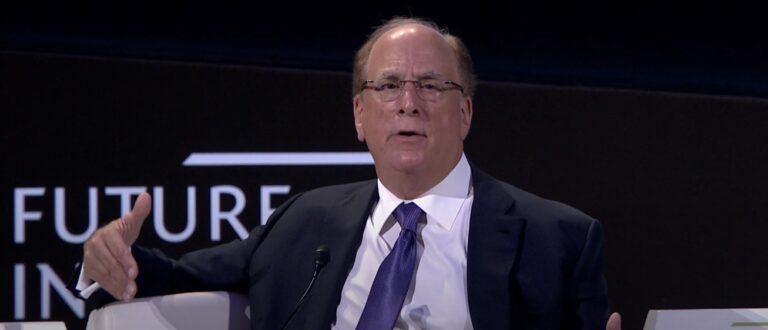Last week, Larry Fink, Chairman and Chief Executive Officer of BlackRock, the world’s largest asset manager by AUM, wrote about crypto as part of his annual Chairman’s Letter to Investors.
BlackRock, which was founded in 1988, started with just eight people working in one room. It made its Initial Public Offering on the New York Stock Exchange on 1 October 1999 at $14 a share. In 2006, BlackRock acquired Merrill Lynch Investment Management. Then in 2009, it acquired Barclay’s Global Investors (BGI), “becoming the world’s largest asset manager, with employees in 24 countries.” As of the end of Q2 2022, BlackRock had over $8.5 trillion in assets under management (AUM).
On October 13, 2017, at an Institute of International Finance (IIF) meeting, Larry Fink, Co-Founder, Chairman and CEO of BlackRock, called Bitcoin an “index of money laundering”:
“Bitcoin just shows you how much demand for money laundering there is in the world… That’s all it is.“
On August 4, 2022, Coinbase’s Brett Tejpaul (who is Head of Coinbase Institutional) and Greg Tusar (who is Head of Institutional Product) published a blog post, in which they stated that “Coinbase and BlackRock to create new access points for institutional crypto adoption by connecting Coinbase Prime and Aladdin.”
The blog post went on to say that “Coinbase is partnering with BlackRock, the world’s largest asset manager, to provide institutional clients of Aladdin®, BlackRock’s end-to-end investment management platform, with direct access to crypto, starting with bitcoin, through connectivity with Coinbase Prime.” Apparently, Coinbase Prime will “provide crypto trading, custody, prime brokerage, and reporting capabilities to Aladdin’s Institutional client base who are also clients of Coinbase.”
Then, on August 11, 2022, BlackRock announced the launch of “BlackRock Bitcoin Private Trust,” which “seeks to track the performance of bitcoin, less expenses and liabilities of the trust.” BlackRock went on to say:
“… we are still seeing substantial interest from some institutional clients in how to efficiently and cost-effectively access these assets using our technology and product capabilities.“
Well, last Wednesday (March 15), the BlackRock CEO wrote about his firm’s interest in blockchain technology and digital assets in his annual Chairman’s Letter to Investors:
“If there’s one part of financial services that’s caught the headlines over the past year, it’s digital assets, not least due to the collapse of FTX. But beyond the headlines – and the media’s obsession with Bitcoin – very interesting developments are happening in the digital asset space. In many emerging markets – like India, Brazil and parts of Africa – we are witnessing dramatic advances in digital payments, bringing down costs and advancing financial inclusion. By contrast, many developed markets, including the U.S., are lagging behind in innovation, leaving the cost of payments much higher.
“For the asset management industry, we believe the operational potential of some of the underlying technologies in the digital assets space could have exciting applications. In particular, the tokenization of asset classes offers the prospect of driving efficiencies in capital markets, shortening value chains, and improving cost and access for investors. At BlackRock we continue to explore the digital assets ecosystem, especially areas most relevant to our clients such as permissioned blockchains and tokenization of stocks and bonds.
“While the industry is maturing, there are clearly elevated risks and a need for regulation in this market. BlackRock is committed to operational excellence, and we plan to apply the same standards and controls to digital assets that we do across our business.“









